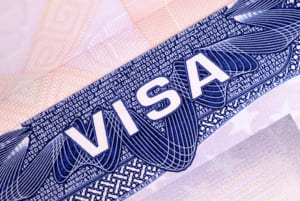 President Donald Trump today amended a previously signed executive order (EO) to expand the current immigration ban to include certain nonimmigrant visa applicants. The updated EO, formally titled “Proclamation Suspending the Entry of Immigrants Who Pose Risks to the U.S. Labor Market During the Economic Recovery Following the COVID-19 Outbreak,” was originally signed on April 22, 2020, and took immediate effect, prohibiting certain immigrant visa applicants from entering the United States. It was scheduled to expire on December 31, 2020. The EO now suspends the entry of any nonimmigrant who meets the following criteria:
President Donald Trump today amended a previously signed executive order (EO) to expand the current immigration ban to include certain nonimmigrant visa applicants. The updated EO, formally titled “Proclamation Suspending the Entry of Immigrants Who Pose Risks to the U.S. Labor Market During the Economic Recovery Following the COVID-19 Outbreak,” was originally signed on April 22, 2020, and took immediate effect, prohibiting certain immigrant visa applicants from entering the United States. It was scheduled to expire on December 31, 2020. The EO now suspends the entry of any nonimmigrant who meets the following criteria:
- Being outside the United States on the effective date of the EO;
- Not having a valid nonimmigrant visa as of June 22, 2020; and
- Not having a valid official travel document (such as a transportation letter, travel letter, or advance departure authorization) before the issuance of the EO.
Specifically, the EO targets the following nonimmigrant visa categories:
- H-1B skilled and seasonal workers;
- J-1 visas for interns, trainees, teachers, summer camp counselors, au pairs, or those applying for cross-cultural exchange visas for summer work and travel programs;
- L-1 intracompany transferee visas.
The EO does not prohibit nonimmigrant visa applicants from applying to enter the United States under H-2 agricultural visas to provide “essential services” for temporary workers in the U.S. food supply. Other nonimmigrant visa categories, including E-1/E-2 treaty trader and treaty investor visas, B-1/B-2 visitor visas, H-3 training visas, J-1 foreign physicians, and F-1 student visas, are also exempt.
To learn how this EO may impact your nonimmigrant visa adjudication,
Please contact us at info@enterlinepartners.com to schedule a consultation with one of our U.S. immigration attorneys in our Asia offices in Ho Chi Minh City, Manila, and Taipei.




